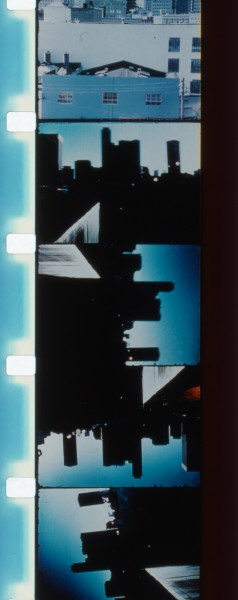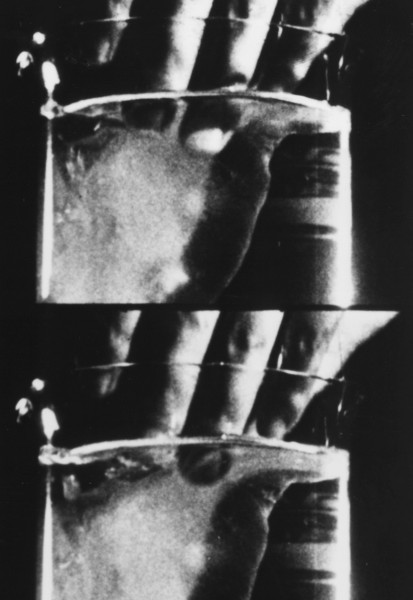
A graduate from Harvard’s Radcliffe Institute for Advanced Study where she earned a degree in history and literature, Abigail Child (b.1948) has been an active filmmaker, poet and writer working in experimental media since the 1970s. Child has written six books and completed more than thirty films, videos and installations, becoming, according to P. Adams Sitney “the central representative of her generation in the intricate and intimate relationship between poetry and cinema in the American avant-garde.”
Enrolled in an interdisciplinary graduate program at Yale and interested in ethnography, her initial foray into filmmaking began with documentaries about the urban underground in New York which landed her a job as a director-producer for NBC. After experiencing the work of filmmakers like Hollis Frampton, Peter Kubelka, Arthur Lipsett and Len Lye, she found her voice through a more avant-garde approach. Rhythmically exploring cinema alongside her poetry, she created works like the exhilarating seven-part Is This What You Were Born For? (1981-89) which Sitney designates “the strongest manifestation in film of the poetic sensibility of language poetry and one of its most impressive achievements.” Her films critically addressed both form and content through radical collisions of sound and image—or in her words “compulsive visual and aural legerdemain.” In another prominent work, B/Side (1996), Child applied complex rhythmic, poetic construction and a sensitive, ethnographic eye to an encampment on New York’s Lower East Side, where some of the homeless of Tompkins Square settled after the riots of June 1991.
Her prolific output also includes two feature films—a documentary exploring covert bisexuality among black men in On the Downlow (2007) and Shape of Error, an “imaginary home movie” based on Mary Shelley’s diaries—as well as five books of poetry and a compendium of critical essays, This is Called Moving: A Critical Poetics of Film (University of Alabama Press, 2005). Her work is also marked by fruitful collaborations with an array of artists, musicians and writers including avant-percussionist Ikue Mori (8 Million, 1992), poet Mónica de la Torre (To and No Fro, 2005), and cartoonist/writer Gary Sullivan (Mirror World, 2006), as well as poet Adeena Karasick and composer Frank London for the recent performance project Salome (2014).
Widely screened, published and acclaimed, Child has received the Rome Prize, Guggenheim and Fulbright Fellowships, a Radcliffe Fellowship and the Stan Brakhage Award among her many honors. For several years, she was Chair of the film department at the School of the Museum of Fine Arts in Boston.
The Abigail Child Collection at the Harvard Film Archive preserves over sixty films by Child, encompassing nearly four decades of film and video. In addition to most of the titles mentioned above, also included in this collection are films such as the early documentaries Game (1972) and Tar Garden (1975), the found-footage symphony Surface Noise (2000), and the films that make up The Suburban Trilogy (2004-11), an exploration of “girlhood and the immigrant dream.”
Visit HOLLIS for a list of Abigail Child Collection materials in the Harvard Library catalog.










